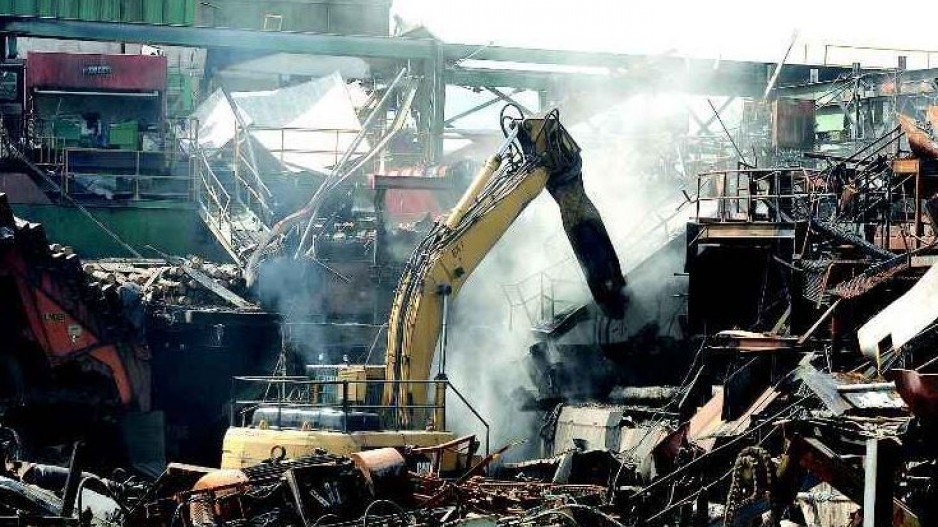While the political fallout continues from WorkSafeBC's failed investigation into a fatal explosion at a sawmill two years ago, critics say the Crown's decision not to lay charges in connection with the tragedy illustrates a deeper problem with Canada's work safety laws.
"It's appalling how little the police and Crown attorneys have done to deal with health and safety," said Norm Keith, a Toronto-based lawyer with Fasken Martineau who specializes in employment and occupational health and safety law.
On January 20, 2012, a huge explosion tore through Babine Forest Products' sawmill in the small northern B.C. community of Burns Lake. Two workers died and 20 more were injured. Three months later, a similar explosion at Lakeland sawmill in Prince George killed two workers.
On January 10, B.C.'s Criminal Justice Branch announced it would not approve the regulatory charges WorkSafeBC had recommended under B.C.'s Workers Compensation Act. Crown counsel said that because the safety agency began its investigation as a safety-compliance inspection rather than a criminal investigation, WorkSafeBC did not advise interview subjects of their charter rights or obtain search warrants. Some evidence therefore would likely have been inadmissible in court.
The way WorkSafeBC conducts investigations is similar to the way regulators in other provinces operate, Keith said.
"Their strategy generally is to try to get as much evidence, as much information, as much statements and confessions from workers, managers and supervisors … but without telling them that they're suspects. And that's the part that in my view becomes a little bit unfair," Keith said.
He added that if regulatory organizations like WorkSafeBC think a manager or supervisor might be a suspect, "they are obliged when they come to that conclusion to advise that individual of their right to remain silent and their right to retain legal counsel."
In response to the Criminal Justice Branch's statement, WorkSafeBC's director of investigations, Jeff Dolan, said the agency has followed the same investigation procedure for the past 10 years, and that it has resulted in successful convictions in the past. For instance, Dolan said that in 2011 Workers Compensation Act charges were approved in an incident at a Langley mushroom farm that killed three workers. That case resulted in a conviction.
But Jim Sinclair, president of the BC Federation of Labour, pointed to other, more frustrating cases, such as a 2007 van crash in Abbotsford that killed three farm workers and an accident in a Weyerhaeuser-owned sawmill in 2004 that killed one worker.
In both cases, police recommended criminal charges, which the Crown declined to lay.
"There is a problem understanding what evidence level is necessary to lay charges, not just in this case – it seems to be a systemic problem," Sinclair said.
The Crown applies the same charge assessment standard to every file it receives, said Neil MacKenzie, a spokesman for the Criminal Justice Branch: "We have to be satisfied that an offence has occurred beyond a reasonable doubt."
Keith said there is reluctance across Canada to use federal legislation – Bill C-45, adopted in 2004 in response to the Westray Mine disaster – to lay criminal charges against individuals and companies in workplace safety violations.
"The police generally, and the attorneys general advising them, have taken a hands-off approach with Bill C-45," Keith said.
"They have not made up for the gaps or the gaffes of safety regulators who are, quite frankly, not always thorough and professional in their investigations."
The legislation, which is part of the Criminal Code of Canada, has been used in under a dozen cases. Keith added that the underuse of the legislation contrasts sharply with the approximately 900 workplace deaths in Canada each year.
"From an employer or manager's point of view, there are no standards set under Bill C-45. The test for being prosecuted is whether or not you've taken reasonable steps to prevent bodily harm. There's an absence of direction from government of all levels of what the expectations are for the criminal code phrase 'reasonable steps.'"




